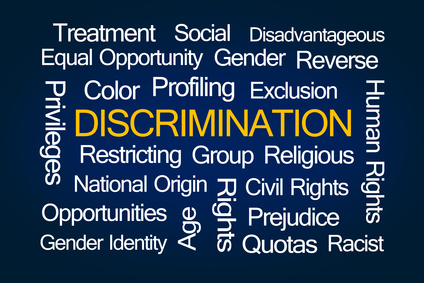These days, it seems unlikely that anyone will lose their job simply because they get married. But that routinely used to happen to women (in the 1950s, nurses had to leave the NHS when they got married, for example). One reason why the Sex Discrimination Act was originally implemented in 1975 was to create equality with men in this regard.

This Act was replaced by the Equality Act 2010. It protects you from discrimination, not just because you’re married or in a civil partnership, but also from discrimination that occurs because of the particular person you’re married to, or in a civil partnership with.
Here are some examples:
Mrs Dunn was a Technical Services Manager for the Institute of Cemetery and Crematorium Management. She was in dispute with her employer about her sick pay entitlement, and later resigned. She claimed constructive dismissal and direct marriage discrimination because her husband also worked for the Institute and had a ‘strained relationship’ with the CEO.
During the employment tribunal claim, her employer produced evidence against her husband, which was found to be irrelevant to the case.
Mrs Graham’s appointment to the position of Inspector in the Bedfordshire Constabulary was rescinded because her husband was Chief Superintendent in the same division. Her employer deemed she wouldn’t be a competent witness in any criminal proceedings against her husband.
She won her direct marriage discrimination claim at the employment tribunal, not because she was married, but because of who she was married to.
What this means to you
The Equality Act protects you from discrimination due to certain protected characteristics – one of these is being legally married or in a civil partnership.
- You’re legally married when your marriage is recognised under UK law (even if you didn’t get married in the UK)
- You’re protected if your civil partnership was registered under the Civil Partnership Act 2004 (even if it was registered outside the UK)
You can’t bring a claim for marriage discrimination if you’re single, engaged, divorced, living together, or widowed.
You might be protected if you’re separated, but only until your marriage or civil partnership is legally dissolved.
So, let’s assume you’re legally married or in a civil partnership. The Act means you should not be treated differently at work because of your spouse or civil partner (it doesn’t protect you outside work).
Discrimination is most likely to happen when you work in the same organisation as your spouse or civil partner, and a dispute arises between one of you and your employer. Alternatively, it might be discrimination when an employer introduces rules preventing spouses and partners from working together.
If you think it’s happened to you, let’s have a conversation to see whether you could bring a marriage discrimination claim.
For more information, read our article about Marriage and Civil Partnership.
Need help?
For a free initial review of your claim, call 0808 168 7288 or Make An Online Enquiry>.
We have already helped thousands of people to win millions of pounds in compensation.
You have a choice of ways to pay, including ‘no win, no fee’.
We will also discuss the best methods of funding your case and seek to reach a solution that best suits your needs. This can involve a “no-win, no-fee” agreement if appropriate.
